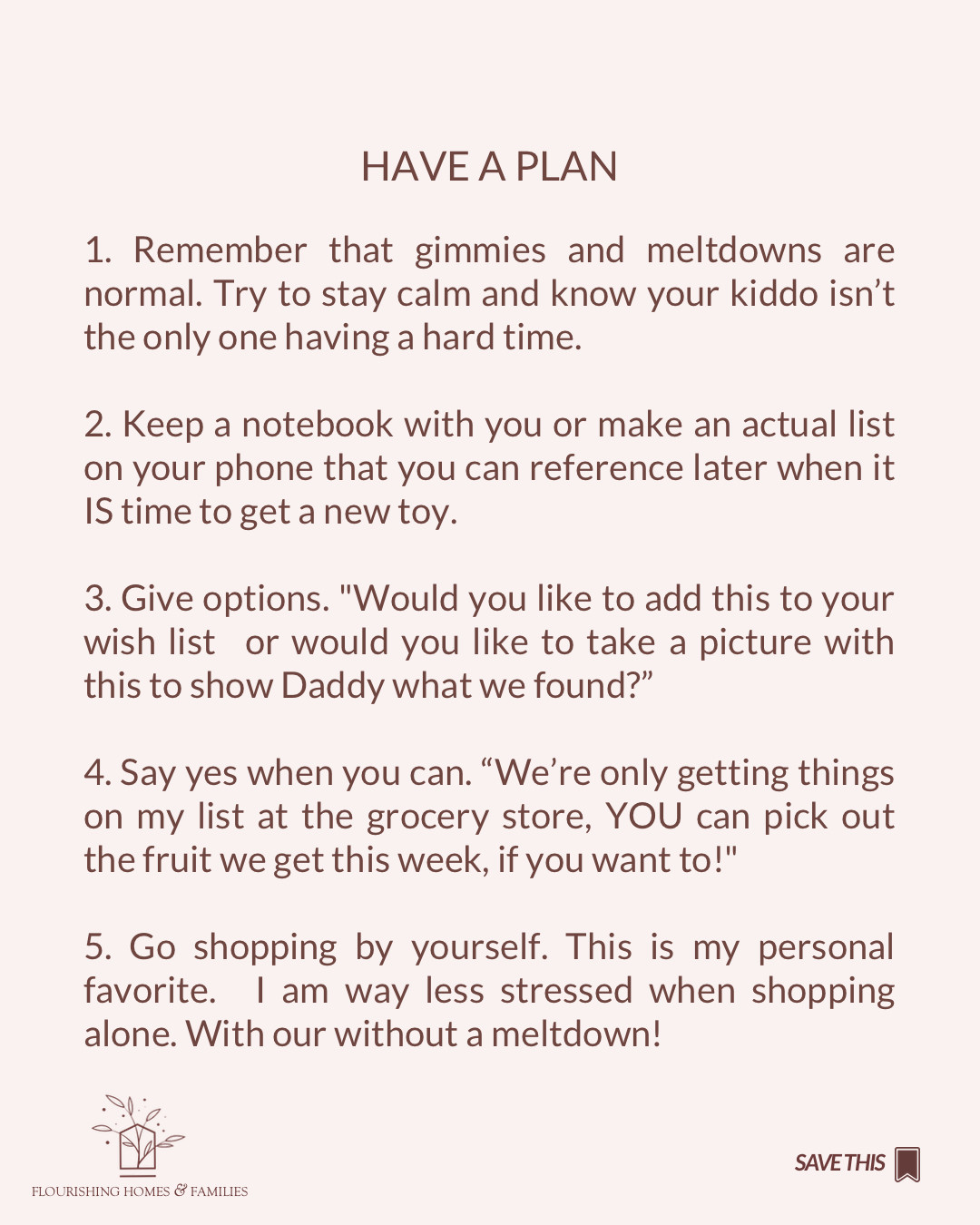
We've all experienced it! Children have strong desires and wishes and are usually very efficient and assertive in communicating them! They also have one-track minds. When they see a toy at the store they are really not able to make a mental list of all the toys they have back home. Especially once their emotions start to take over. They have limited impulse control and they will find it hard to think about something else. This is all normal. Just because they want the toy or treasure they see right now doesn't mean they are not thankful for the whole room full of toys they have at home.
BIBLICAL COMPASSION
"Keep on asking, and you will receive what you ask for. Keep on seeking, and you will find. Keep on knocking, and the door will be opened to you. For everyone who asks receives. Everyone who seeks, finds." - Matthew 7:7-8
As parents, we can learn from our child's persistent and hopeful requests from us - it's how Jesus invites us to come to Him! That doesn't mean we can or should give in to every request immediately, but we can cultivate soft and gentle hearts towards our children.
A LITTLE PERSPECTIVE
It's no coincidence that the store checkout has shiny, colorful child-sized items right at their eye level. It's a marketing strategy that no doubt has put money in someone's pocket, and taken money out of the poor parents' pocketbook! Of course we can't indulge our child every time our little ones want a prize or a treasure, but it is helpful to learn that "I want a new prize/treasure/toy" might really mean "I'm craving something tangible that tells me in my own language that you love me.
PREP BEFOREHAND
Before you take them into the store, let your little one know the plan ahead of time. "We're going to the store, and we have plenty of time to look and shop, but we are not buying any new toys today. If you see something you want, we can put it on your wish list!" Note: In order to cultivate trust, you do actually have to shop off their wish list! If you don't, they will pick up on this trick as simply dismissing their wishes, and will push back against adding things to their wish list.
KEEP A WISH LIST
Keep a pocket notebook in your bag, or make a list on your phone's Notes app. Label the list with your child's name, and let them see that the list is real. When they see a toy or treasure they really want, offer to add it to their list. (This is an example of turning a "no" into a "yes".) "I can tell you really want that Lego set! I'II be happy to put that on your wish list. Do you want to put it on a Christmas wish list or on a list to remind you when you have spending money with you?" Remember to reference the list when it IS time to get a new toy!
TAKE A PICTURE
Some kids are visual, and they like the visual reminder more than a written list. You can make an album on your phone to keep the photos in and offer to let your little ones review the pictorial wish list when they have spending money. If you have an iPhone, you can also add photos to your list in Notes, and then delete the photo from your photo album.
ONE THING TO CONSIDER
Something to keep in mind is that there's a good chance that a child who is notoriously prone to "gimmies" or really struggles with adding to a wish list instead of purchasing, may have a love language of gifts. Pray for wisdom to know when and how to show them love in the way God designed them.

Want to learn more about Peacemaker Parenting? Our 1 hour workshop is an introduction to the core principles and foundations of Peacemaker Parenting and is full of practical tools and strategies for leading your family with peace and grace:













0 Comments